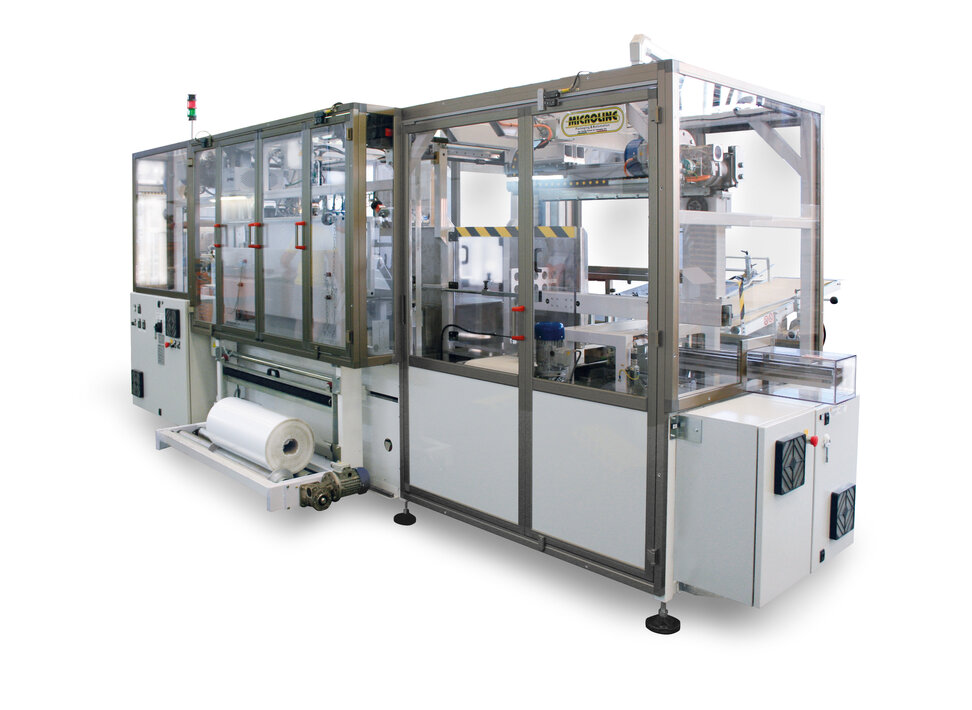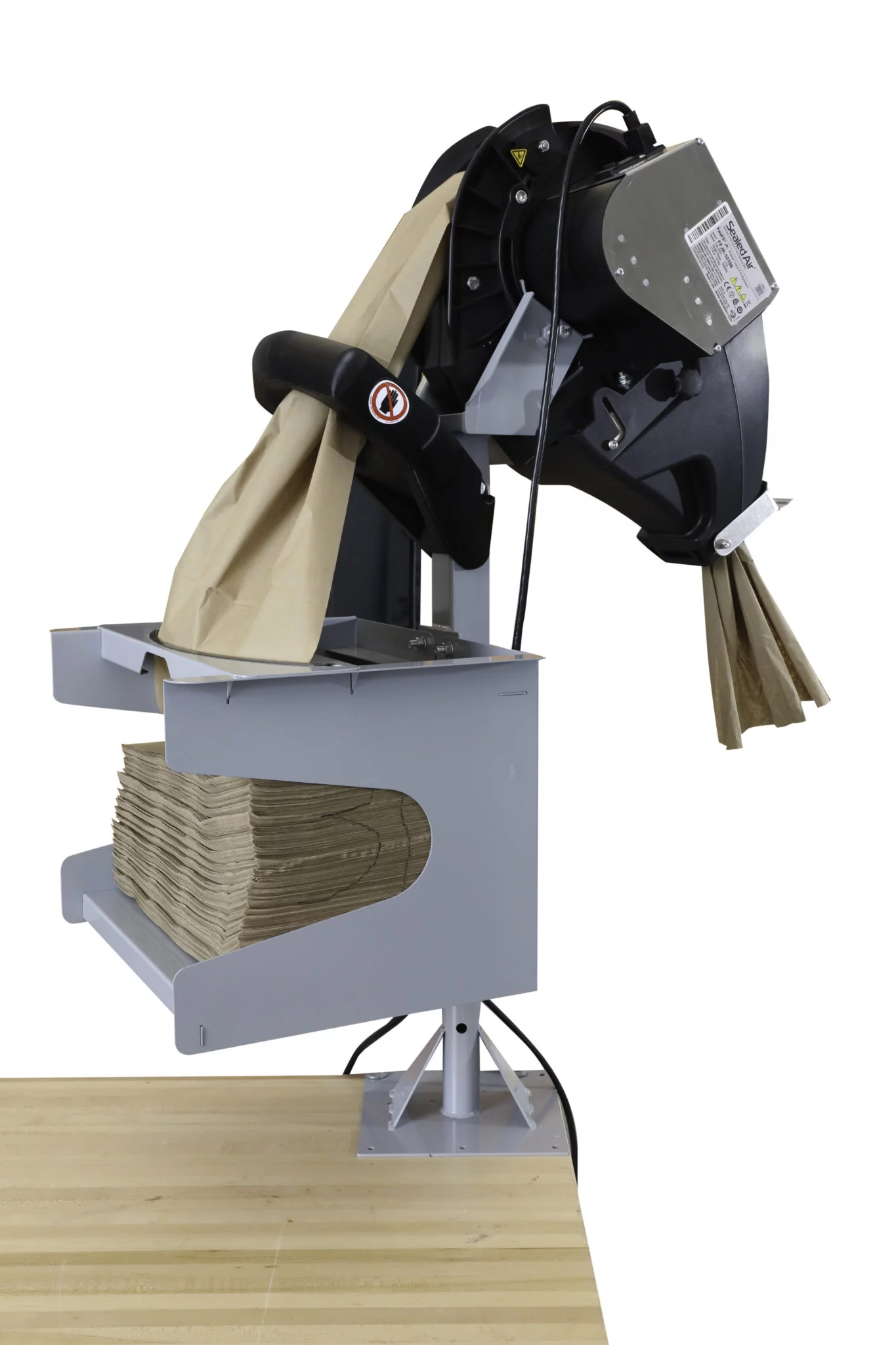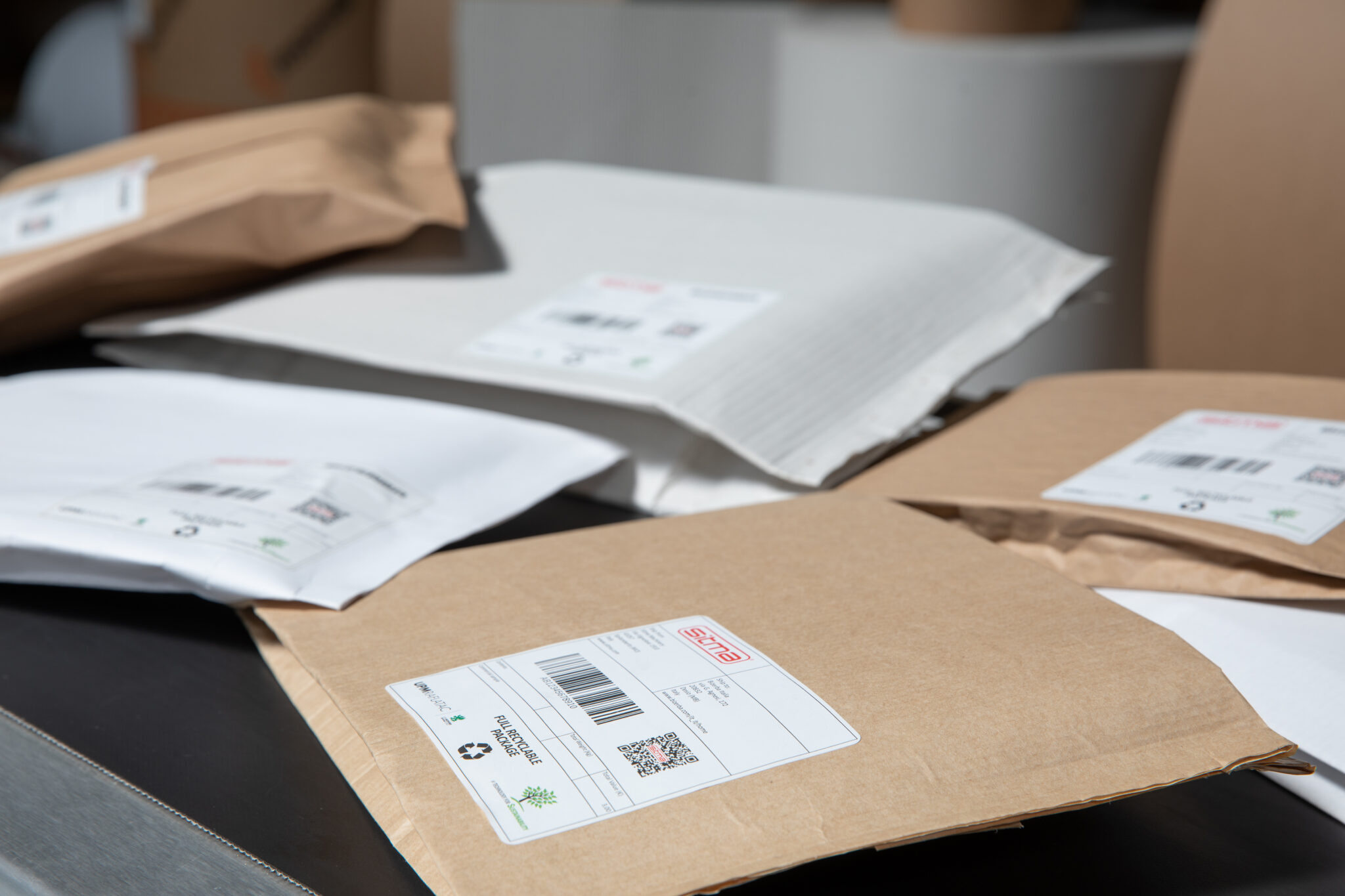As labour shortages across the supply chain hit the front pages in the UK, the cry goes up from the more excitable elements of the media to ‘save Christmas’. Unfortunately, as businesses and politicians are beginning to realise, the skills and labour crisis is of long standing and won’t be properly resolved in three months by any number of quick fixes. By Jo Bradley (pictured), Business Development Manager, Sparck Technologies (formerly Packaging by Quadient).
If the Prime Minister is right in his aspiration for a high skill, high wage, high productivity economy, that must require business to close the gap on our competitors in the application of automation – as the Chancellor has recognised by supersizing Capital Allowances.
Nowhere is this more true than in the fulfilment and distribution operations of e-commerce, which now represents over a quarter of retail activity and is being afflicted by shortages not only of drivers but of pickers and packers as well. Judicious application of automation to packing stations is an essential element in resolving the labour crisis, not just in the warehouse, but on the road.
No one would claim that packing goods into cardboard boxes is a highly skilled career, but nor is it straightforward. The task is physical, repetitive, boring and is usually conducted under considerable pressure to achieve the required throughput. What’s more, it is often poorly paid and involves working unsocial hours at hard to reach locations.
Unsurprisingly, staff retention for such tasks as packing is low and it can take some time for new hires to get up to speed with the complexities. Meanwhile, the resulting package is the retailer’s principal touch-point with the customer. A shoddily-assembled and sealed box, perhaps over-sized and mostly containing redundant or ineffective void fill, can really irritate consumers and doesn’t encourage repeat business.
Packing has its complexities. The packer has to assess a pile of assorted goods of differing shapes and sizes and select an appropriate box pre-form from a limited range of shapes and sizes. Guess too small and you have to start again, and throughput takes a hit. Pick a safe over-size, and the resulting package is largely composed of polystyrene, bubble wrap, crumpled paper or even other, smaller, cartons.
The box has to be erected, filled (including any void-fill), sealed neatly and effectively, and labelled accurately and securely, all at speed. This sequence of operations is an obvious candidate for automation but, even in distribution centres that have made significant investment in automating storage and retrieval, packing is often still a largely manual process.
Probably, this is because the high variability of boxes and of contents, and the need to make frequent judgement calls, makes the operation seem too complex for automation. But this isn’t the case.
Automated packaging solution
CVP Automated Packaging Solutions from Sparck Technologies – the new name for Packaging by Quadient – create ‘right-size’ boxes in seconds by scanning and measuring the goods, whether they be single or multi-item orders, cutting to size and erecting the box, sealing, weighing, and labelling automatically.
With CVP Impack, one or two operators can pack up to 500 parcels an hour; with the CVP Everest, two operators can pack 1,100 an hour. On average this replaces up to 20 manual packing stations, which in tight times for staffing means not just savings on packer and supervisor wages, but recruitment, training and HR costs too.
The labour benefits of automated packing can be felt not just in the distribution centre but out on the road as well. Less wasteful, more compact packages mean a higher density of saleable goods, rather than fresh air, on the vehicle, be this a 44-tonner on a trunk route or, more acutely, the small vehicles that are commonly used on last mile and urban delivery.
Ideally, a vehicle on a delivery round would leave the depot with all the packages to be delivered in a full shift. But very often this isn’t possible, and the driver has to make several trips back to ‘restock’. That is a lot of empty running, creating unnecessary congestion and emissions. It works against efficient delivery routing, it means that a significant part of the driver and vehicle day is unproductive and, in those operations where staff are paid per delivery a significant part of their day is effectively unpaid, which doesn’t encourage retention of conscientious staff.
Right-sizing the boxes through automated packaging systems can achieve significant gains in labour and vehicle utilisation – reducing the volume of a given quantity of goods by around 50% on average or, potentially, doubling the productivity of the delivery driver.
Sparck Technologies’ packaging solutions can make a real contribution to resolving the labour availability problem now and in the longer term. But it isn’t just a ‘defensive’ investment. Cardboard usage is reduced by around 30% and if external carriers are being used, freight charges can be cut by a third, as most carriers charge at least partially on volume. And the brand benefits inestimably as consumers appreciate a well-constructed, right-sized package reflecting a company that cares about resource usage and environmental impact.










